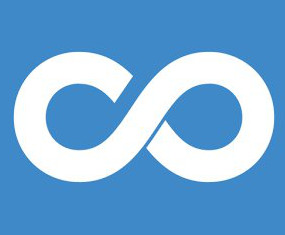| Coursera Commits Cultural Vandalism As Old Platform Shuts - UPDATE |
| Written by Sue Gee | |||
| Tuesday, 21 June 2016 | |||
|
Coursera has announced that 30 June is the date when it will shut down the servers hosting courses that were the first, free, offerings on its platform. This is unnecessary destruction of irreplaceable content. Coursera needs to rethink this policy that goes against everything it originally stood for. UPDATE: Coursera's PR team has requested a change to the headline used here, but I haven't managed to come up with an alternative that sums up the situation. The title also proved effective in that within hours of its publication Coursera contacted us, writing in an email: We saw your article earlier today expressing concern over a recent email we sent out to learners that wasn't very clear about how courses on our old platform will be transitioned to our new platform. We just posted clarification on our blog that I hope will help address many of the concerns you expressed. The blog post has the title Coursera’s transition to a new technology platform outlines the advantage of the replacement platform as enabling Coursera to run courses more frequently offers some reassurance that a high proportion of it courses will continue to be available:
Nearly all courses that have been offered on that platform will remain available in an updated format on the new platform. Hundreds of courses offered on the old platform have already transitioned to the new platform, and more content will be made available on the new platform in the coming months. It also estimates that: There are a few dozen courses on the old platform that will not migrate to the new platform. This conflicts with the estimate made by Class Central that 450 courses will be affected and the problem here is that Coursera hasn't yet managed to produce a complete list. Comments to the blog post asking for such a list have gone unanswered, but Courera's PR team has sent one to me, listing just 17 that are definitely not going to relaunch. However, this list didn't include courses that I already knew were being discontinued from notifications by course instructors, including Algorithms I and II. So while I can trust that the the courses on its list WILL NOT RUN, this doesn't give reassurance that others WILL RUN and it sounds as though Cousera itself doesn't yet know. Regarding Geoffrey Hinton's Neural Networks with Machine Learning, which I chose as an example of a iconic course that should not be allowed to disappear, Coursera's PR Manager, Charlotte Crawford writes: Professor Hinton's course is not on this list. We are actively working with the University of Toronto to try and make sure this course can relaunch on the new platform. I will personally keep you posted on the status of this course specifically. While I am very pleased that Cousera is taking this step to save Hinton's course, it doesn't address what could be seen as the main issue - a move from one platform to another with a complete disregard for backward compatibility. Is there any need to throw anything away in an era when there is almost infinite elasticity in the cloud. Yes servers cost money but surely Coursera can afford to find some solution to preserve courses from what we are already calling "the Golden Age of MOOCs". A petition to Continue the availability of old courses available on Coursera and save MOOC era has been initiated on Change.org. If you want to help sway Coursera's opinion please sign it and share it. END OF UPDATE
Coursera is planning to remove courses from the early days of the MOOC that are likely to be important in the history of their subject. The most relevant for us is Geoffrey Hinton's Neural Networks for Machine Learning which gave a "deep" insight into the way this pioneer of neural networks thinks and how neural networks work. Something has to be done to preserve this important record. But why is it happening? This isn't the first time we have reported on the fact that in moving to its current platform, Coursera was planning to shut down what it calls its "old" platform. We've also passed on information supplied in response for clarification requests that this was unlikely to affect many Computer Science courses as its university partners were mostly transferring content to revamped, updated versions suited to Coursera's new model. The new model isn't just a revised interface, it is also a new monetization model, and presumably the decision to throw out all the original free content, by shutting the platform, is motivated by greedy commercialism. For a few months already there have been no free certificates for successful completion of courses on Coursera and in the case of its most recent MOOCs if you choose the free option, which is to audit the course, rather than pay to enroll you can't access assignments. Where you can engage in Quizzes on the auditing track you are constantly nagged to upgrade for a Verified Certificate that will enable you to show off your achievements. You could say that the golden age of the MOOC is over with the early enthusiastic pioneers doing it because they were passionate about their subject and teaching it being replaced by a bunch of "lets teach a course because its good for my career and ego" with subjects being selected by what will sell. My complaint isn't about having to pay for course certificates - the amount charged per course is not excessive compared to other learning options and students who would be precluded from joining in can ask Coursera for financial aid. What I am concerned about is that Coursera is willfully throwing away high quality content having changed the terms and conditions after it was created. Initially courses were not only free they were academically rigorous with university level content. In order to present their existing course on the new platform Cousera's academic partners were asked to update and revise them. Not only would this entail a lot of new effort, in many cases they needed to make make major adjustments to suit Cousera's move to Specializations - widely seen as a strategy for Coursers to lock students in a make money as they consist of a series of multiple courses plus a final Capstone project that you can only do if you have completed them all. This is not university education but on-line apprenticeships. Some old platforms courses have gone along with this this - see the example of Martin Odersky's Scala courses that have been augmented by new courses on Functional Programming for the new Functional Programming in Scala Specialization. The commercial aspect of Specializations might itself be disincentive for some of the academics who had approved the original model of providing high quality online education at no cost to the student but there's another problem - that of duplication. In our recent coverage of the new Algorithm Specialization we pointed out the wealth of choice on this topic without pointing out that this was likely to become a problem. While Tim Roughgarden posted a comment on the article that his two courses, Design and Analysis of Algorithms I & II, are being ported to the new platform, the long running Algorithms I and Algorithms II taught by Kevin Wayne and Robert Sedgewick, are not. Other important courses that are about to disappear are: Automata (Jeffrey Ullman) Mining Massive Dataset (Jeffrey Ullman) Bitcoin and Cryptocurrency Technologies If you want to know about others, Class Central which has produced a list of an estimated 400 deletions together with guidelines on how gain access prior to the deadline, see Coursera is Removing Hundreds of Courses. Here is a Guide To Get Them While You Can. Many one-off courses that don't fit neatly into a Specialization are also disappearing, despite the fact they worked perfectly well in isolation and some of them were iconic and should be preserved because they are of lasting value. This applies in particular to Geoffrey Hinton's Neural Networks for Machine Learning, which was created under the auspices of the University of Toronto before Hinton took on his current role as Distinguished Researcher at Google. This eight-week course, which was presented only once, in 2012, set out to teach students artificial neural networks and how they're being used for machine learning, as applied to speech and object recognition, image segmentation, modeling language and human motion. Having done this course myself I can vouch for the fact that it was excellent in terms of its content and presentation. It's introductory video is still on YouTube and gives the flavor of the course:
Can we really let the course bite the dust? It would be an act of needless cultural and academic vandalism. Hinton is one of the founding fathers of neural networks and deep neural networks, in particular. Having done the course I can attest to the fact that it is an insight into the way he thinks about things. Surely this is a historic document that cannot simply be erased or assigned to some inaccessible digital blackhole. In the future historians of AI will wonder what happened to the groundbreaking course. Is there no way to stop this anti-educational development?
More InformationCoursera’s transition to a new technology platform Coursera is Removing Hundreds of Courses. Here is a Guide To Get Them While You Can Petition to Continue the availability of old courses available on Coursera and save MOOC era Related ArticlesNew Coursera Core CS Specialization Scala Specialization On Coursera Coursera Offers CS Specialization Certificates To be informed about new articles on I Programmer, sign up for our weekly newsletter,subscribe to the RSS feed and follow us on, Twitter, Facebook, Google+ or Linkedin.
Comments
or email your comment to: comments@i-programmer.info |
|||
| Last Updated ( Friday, 15 July 2016 ) |



